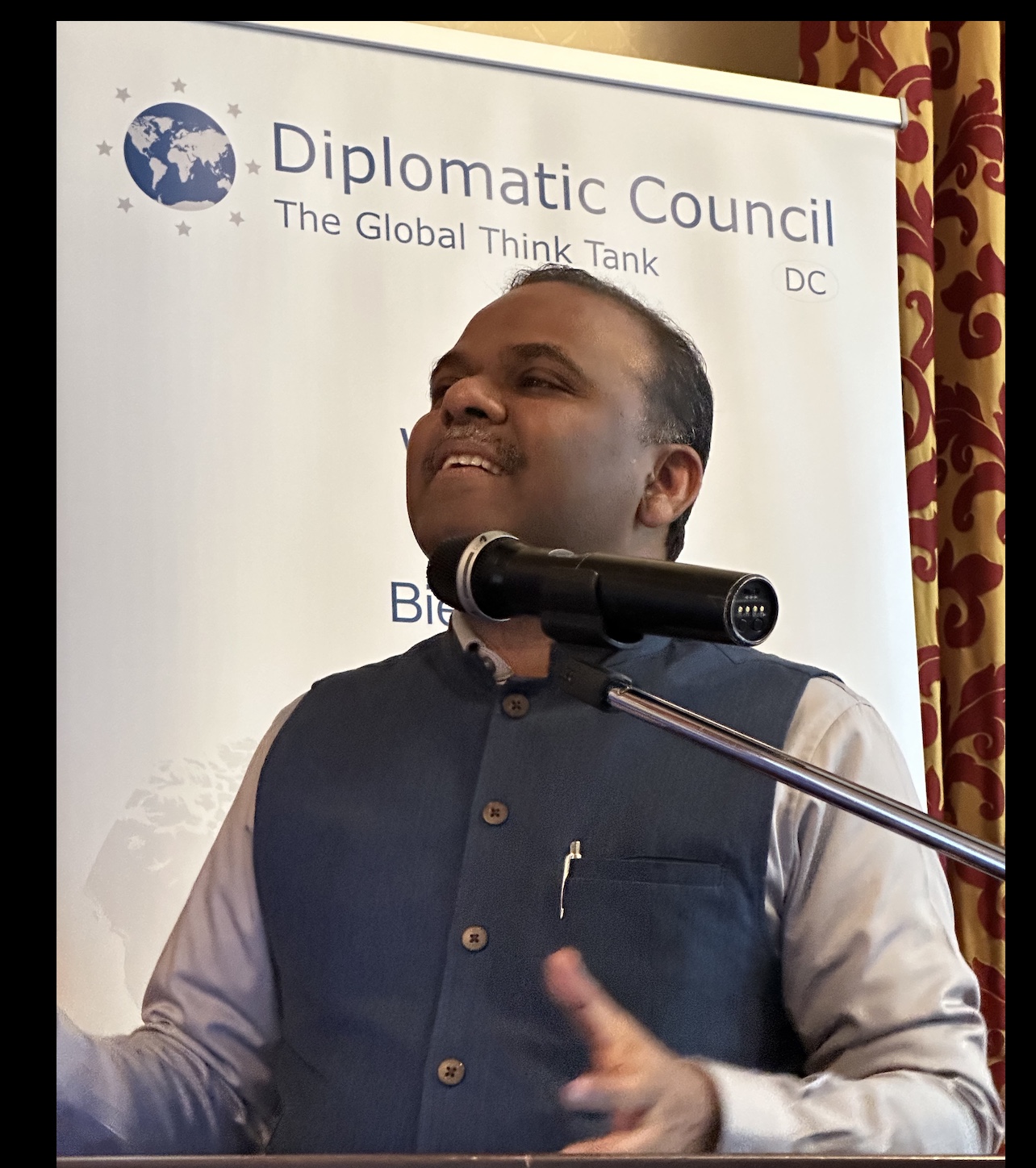India is now the fastest growing major economic power and the fifth largest in the world. This means that the country has worked its way up from tenth to fifth place within ten years. The current growth rate is 7.2 percent. India aims to become the third largest economic power in the world by 2028 at the latest. The country's comprehensive digitalization is a crucial foundation for this brilliant development. And the population will benefit massively from this strategy. These were the key messages with which the Indian Consul General M.S. Mubarak astounded many participants at this year's Diplomatic Council Spring Festival as keynote speaker.
Digitalization with a triad
Consul General M.B. Mubarak gave an in-depth insight into India's digitalization strategy for the benefit of the population (Digital India: Power to Empower), which was launched in 2015. This was based on a triad consisting of the nationwide introduction of a digital identity, a smartphone and - a matter of course in Europe, but not there - a bank account for everyone. The causal chain: thanks to the digital ID, every Indian can open their own account via their smartphone in just a few minutes. Anyone who has ever set up a bank account in Germany knows that this is a process that takes days at best and usually weeks. For the Indian population, this was a major step forward, because only with a bank account can you seriously participate in economic life. in figures: in 2011, only 20% of people in India had a bank account; by 2019, this figure had risen to over 80%. Without consistent digitalization, this development would have taken 47 years, Consul General M.S. Mubarak calculated to the participants at the Diplomatic Council's spring festival.
5G mobile communications and UPI
At the same time, India set up a virtually nationwide 5G mobile network and introduced a Universal Payment Infrastructure (UPI), which was very well received by the people. This is also due to the fact that prices for smartphones and mobile data transmission have fallen dramatically. Last summer, UPI transactions exceeded the ten billion mark in one month for the first time (in 2016, there were only 100 million transactions per month). Basically, only foreigners pay with cash in India (UPI only works with an Indian bank account). 48 percent of all digital real-time payments worldwide are not made via Mastercard, Visa or Apple Pay, but via UPI. A nice side effect for the Indian government: the consistent digitalization of the payment system has quadrupled the growth in tax revenue, meaning that "Digital India" is refinanced in this way, among other things.
Prosperity and self-confidence
The digitalization strategy has not only increased the country's prosperity, but also the self-confidence of the Indian population, the Consul General makes clear: "Those who study in India today often no longer dream of a career in the USA, but often want to start a company in their own country. Every day (!) 80 new start-ups are created in India. Every tenth so-called "unicorn" worldwide - start-ups with a market valuation of over one billion US dollars - is based in India. In total, India has 111 unicorns with a combined market capitalization of around 350 billion dollars. In 2021/22 alone, 45 new companies were founded in India that have already crossed the billion-dollar threshold.
Consul General M.S. Mubarak made it very clear at the Diplomatic Council just how huge the "Indian human resources" are not only for his own country, but potentially also for the world: around one billion people under the age of 35. A quarter of all people worldwide who have a degree in engineering were born in India. The Consul General described his country with recognizable pride as the "Talent Hub of the World".
Skilled workers from India
How can we succeed in attracting skilled workers from India to Europe? Above all, by training them as students at German universities and colleges. During this period of study, they develop an emotional bond with Germany and see the host country as their home, which they will not give up later. Indians who are past this stage, on the other hand, are rarely drawn to Europe, but - unless they want to stay in their own country anyway - either to surrounding Asian countries or to the USA.
Digitalization as a driver of democracy
Digitalization is also a driver of democracy, the Consul General points out; as is well known, a new parliament is currently being elected there. There are 970 million eligible voters and one million polling stations, which have been open for six weeks since April 19. The polling stations are actually electronic voting machines. As, despite all the digitalization, around 20 percent of people there are still illiterate, the digital box next to each party shows a corresponding symbol, such as a lotus flower. There are 5.5 million voting machines in operation, from the jungle to the Himalayas, so that every eligible voter within a two-kilometer radius can cast their vote. But not everything is digital: to prevent someone from voting twice, a waterproof purple mark is made on the nail of the index finger after casting the vote. The election is over until the nail has grown out. Democracy costs: At 14 billion euros, India's election is probably the most expensive in the world. Consul General M.S. Mubarak postulates a "Celebration of Democracy".

